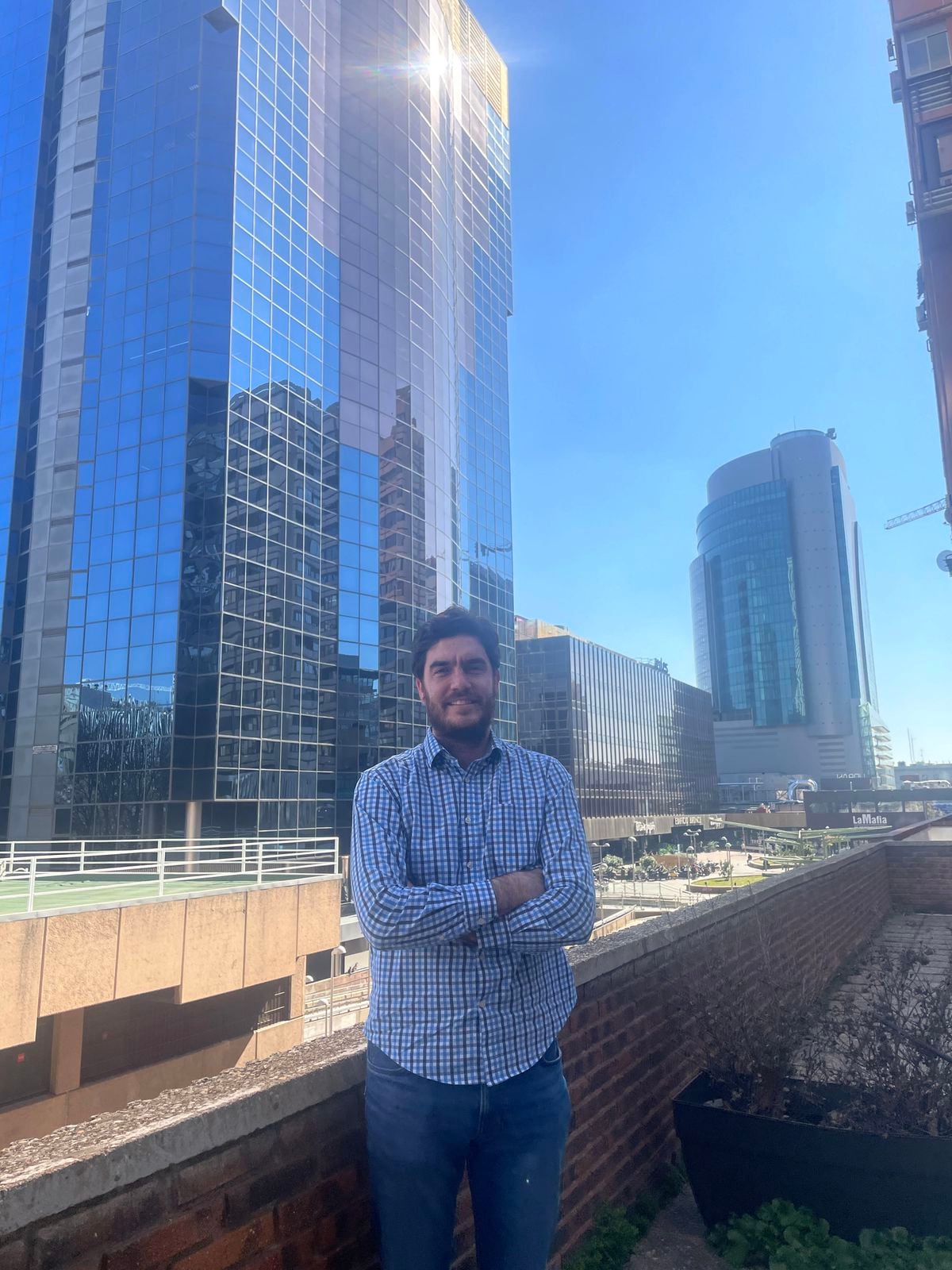Jaime Medina, CEO and founder of the company.
It is a long way from the particle accelerator in Switzerland to an aseptic office on Calle Orense in Madrid;
the same one that goes from theoretical physics to financial advice for a
start-up
.
Jaime Medina (Madrid, 32 years old) has gone through it: starting from an early obsession with "the last brick in the universe", this computational biophysicist ended up founding, after passing through The Startup CFO consultancy, a financial advisory and management company for emerging companies that last year it had a turnover of 1.8 million euros.
More information
The company that was born from a turkey fillet about to expire in the fridge of three roommates
Medina was, he says, “100% dedicated to science”, and when he talks about it his passion is evident: “At school they tell you that the kidney warns the brain of I don't know what.
Here no one warns anyone.
What happens is physics and chemistry”.
First of her promotion in physics, in 2012, when the Higgs boson was discovered, she was doing a summer internship at CERN, the European Organization for Nuclear Research.
After an exchange in the United States, she completed a master's degree in computational biophysics at Rockefeller University, where she was programming until disenchantment struck.
“Working in science is not the same as studying science.
The race is a huge sea five centimeters deep, ”she says,“ the doctorate is a dwarf space 50 kilometers deep ”.
It turned out that despite his initial vocation, she did not have the necessary passion to investigate: "You have to be passionate about your subject, take away your sleep."
And he decided, inspired by a fellow intern at the prestigious MIT, to make the leap to strategic consulting at the multinational McKinsey.
It wasn't an easy jump: “I had no idea what people were doing in companies,” he says with a laugh.
He prepared the processes conscientiously and ended up entering.
He met half of young people who had studied ADE, the other half engineering, "and two weird guys."
He was one of them, and in a year at McKinsey he learned to be a most efficient worker, although, yes, faithful to his scientific origins: "I think like a physicist for everything."
From consulting, like from research, he ended up tired: “The best decision of my life was to enter;
the second, to leave”.
The next jump was to a
start-up,
where he began his idyll with finances.
There, for a carambola, he ends up directing the company's financial team, and again at forced marches, doing a vital master's degree.
After a stint at another company, he began to provide his services as CFO —the acronym in English for what in Spain is known as financial director— for other companies as a freelancer.
Public and private capital
The business continued to grow, and Medina ended up founding The startup CFO, a company that, although it includes the word in its name, he insists that it is not a start-
up
to use.
The company, which has been profitable since its inception, has raised 40 million euros in private capital for its clients, 8.5 million euros in public financing and 3.5 million euros in bank financing.
With 25 employees, at the end of 2022 it began its international expansion with the opening of an office in Berlin.
Medina's company, which shares a plant at its Madrid headquarters on Calle Orense with El Cobrador del frac, combines financial consulting with management work and a financial academy for start-
ups
.
He has already advised 160 companies.
In an uncertain economic context, obtaining financing for your clients is going to be complicated.
But, all in all, turning off the tap that has inflated the bubble of the enormous variety of start-ups founded in recent years "is not necessarily bad" for Medina.
“Here you do well if you cover a need.
Crises are much more good than bad: I think there has been a glut of
start-ups
”.
His next goal is to invest in other startups.
The entrepreneur who “always thinks like a physicist” —and who, he admits, works better in front of a table with data than a graph— is very clear about the determining factor for investing in a company and, paradoxically, it is not its cash flow. of cash, nor its gross operating result: "I look 90% at the people, 9% at the market and 1% at the idea".
Follow all the information on
Economy
and
Business
on
and
, or in our
weekly newsletter

